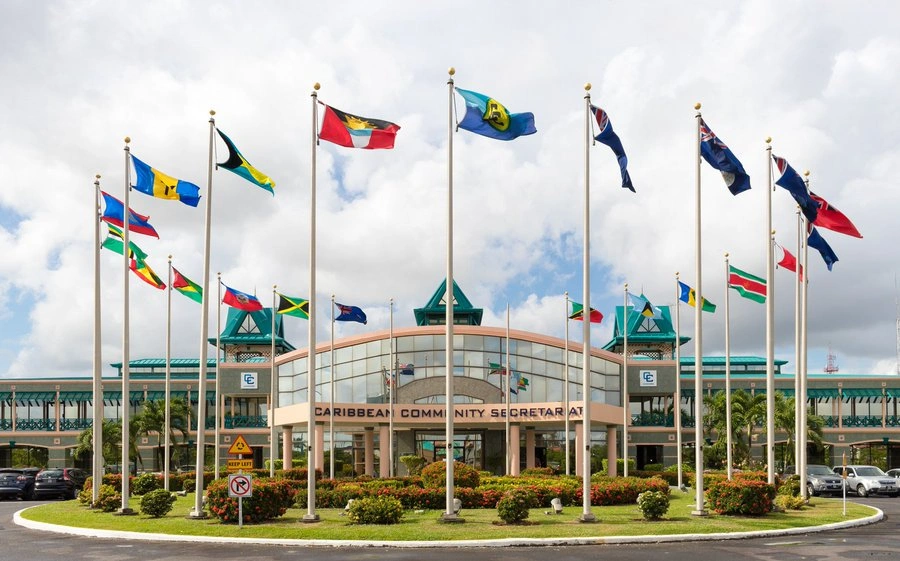Carib Sentinel | Bridgetown, Barbados
BRIDGETOWN, Barbados — Caribbean leaders convened at the 48th CARICOM Heads of Government Meeting this week, rallying behind a contentious yet transformative proposal: the unrestricted movement of people across the region. Championed by Guyana’s President Dr. Irfaan Ali and Dominica’s Prime Minister Dr. Roosevelt Skerrit, the initiative seeks to dismantle decades-old barriers in a bid to bolster economic resilience and regional integration, even as some member states voice reservations.
Push for Free Movement
Under the summit’s theme, “Strength in Unity: Forging Caribbean Resilience, Inclusive Growth, and Sustainable Development,” President Ali framed free movement as both a right and an economic imperative. “This is not merely about crossing borders—it’s about unlocking our collective potential,” he declared during a pre-summit address. His call to eliminate trade barriers and streamline labor mobility resonated with advocates who argue that fragmented policies stifle growth in the 15-member bloc.
Prime Minister Skerrit amplified the message, dismissing fears of mass migration. “Our economies aren’t large enough to attract overwhelming numbers. This is about empowering citizens to fill critical gaps in healthcare, agriculture, and construction,” he asserted, citing aging populations and sector-specific labor shortages.
Diverging Views and Regional Concerns
While Guyana, Dominica, and Barbados lead the charge, skepticism lingers. Smaller nations like Antigua and Barbuda and St. Lucia caution against potential strains on public services and security risks. “We must balance openness with practicality,” one delegate noted anonymously. Despite divisions, leaders expressed optimism about crafting a phased implementation plan to address concerns.
Economic and Social Benefits
Proponents argue free movement could reinvigorate the Caribbean Single Market and Economy (CSME), enhancing cultural exchange and entrepreneurship. A 2023 CARICOM study estimates labor mobility could boost regional GDP by up to 7% annually, particularly in tourism-dependent economies recovering from pandemic losses.
Food Security and Energy Integration
Beyond migration, the summit prioritized the “25 by 2025” initiative, aiming to slash the region’s $6 billion food import bill by 25% within a year. President Ali underscored agro-innovation and intra-regional trade, while leaders endorsed a unified energy strategy to transition toward renewables and stabilize electricity costs. “Energy affordability is key to competitiveness,” said Barbados Prime Minister Mia Mottley, referencing the region’s vulnerability to global oil price shocks.
Haiti’s Crisis Takes Center Stage
Amid jubilation over regional unity, the humanitarian catastrophe in Haiti cast a shadow. Leaders debated increased funding for a Kenya-led security mission and humanitarian aid, though concrete commitments remained elusive. “Haiti’s stability is inseparable from our own,” Skerrit emphasized, echoing calls for international support.
A Defining Moment for CARICOM
As the summit concluded, the free movement proposal stood as a litmus test for CARICOM’s relevance in an era of geopolitical shifts and climate threats. While hurdles persist, Ali’s closing remarks struck a hopeful chord: “Our strength lies not in isolation, but in the audacity to reimagine the Caribbean as one nation, many voices.”
,
Carib Sentinel: Your premier source for in-depth analysis of Caribbean policy, culture, and development. Stay informed with authoritative reporting on regional unity and global challenges.



